#Victor Milner
Explore tagged Tumblr posts
Text


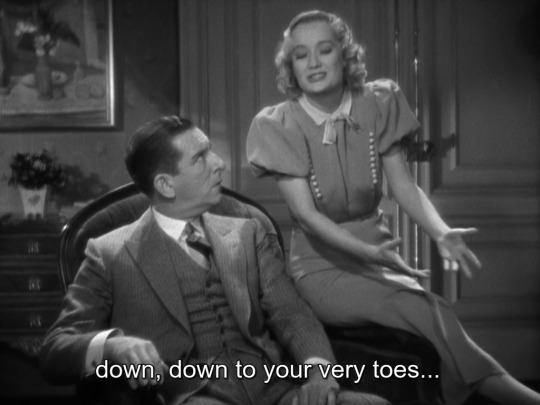
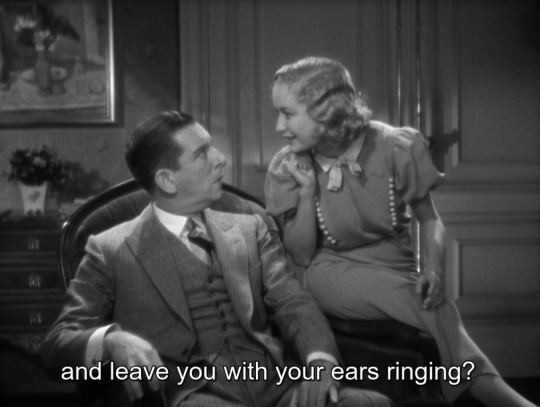
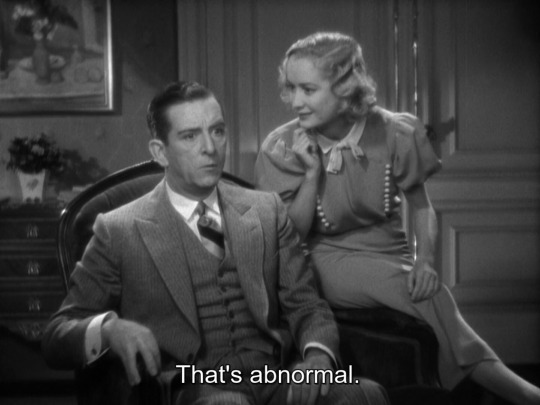
Design for Living, Ernst Lubitsch (1933)
5 notes
·
View notes
Text

. You see, Francois, marriage is a beautiful mistake which two people make together. But with you, Francois, I think it would be a mistake.
Trouble in Paradise, Ernst Lubitsch (1932)
#Ernst Lubitsch#Samson Raphaelson#Miriam Hopkins#Kay Francis#Herbert Marshall#Charles Ruggles#Edward Everett Horton#C. Aubrey Smith#Robert Greig#Victor Milner#W. Franke Harling#1932
3 notes
·
View notes
Text
Fay Victor — Life Is Funny That Way (TAO Forms)

Photo by Deneka Peniston
If Herbie Nichols is remembered at all, it’s as a jazz composer and a pianist, not as a songwriter. In the decades since his death he’s carved out a small legacy with musicians like Roswell Rudd, the Clusone Trio and Misha Mengelberg recording albums with his material. These are the records that do the heavy lifting in carrying his music on; Nichols own The Complete Blue Note Recordings (Blue Note, 1997) is a bulky three-CD set that's out-of-print and goes for a premium on the secondary market.
Never a recording success in his short lifetime, Nichols paid the bills by working a variety of gigs: he taught piano, penned articles and poems for magazines, and accompanied singers. Throughout this he was writing music at an almost frantic pace: about 170 compositions, some with lyrics. And even if you don’t know Nichols’s name, you’ve probably heard his most famous one: “Lady Sings the Blues,” a song that Billie Holiday turned into a standard. When Nichols died in 1963, writer AB Spellman noted he’d never had a year where he supported himself solely on his own music.
In recent years, New York based jazz singer Fay Victor has developed her interest in Nichols music with her Herbie Nichols SUNG project. Life Is Funny That Way is the result of these years of work: she’d added lyrics to a set of Nichols’s songs, fleshed out arrangements on others. Over 11 performances, she’s backed with a jazz quartet and brings this music — some of it never recorded in Nichols’s lifetime — to life.
It opens with “Life Is Funny That Way,” a song starting with Victor and sax player Michaël Attias together. When they get to the chorus the band joins in with a nicely swinging groove. Immediately you can hear the chemistry between Attias and Victor: they almost play in unison, his notes mirroring her singing. The other players (Anthony Coleman on piano, Ratzo Harris on bass, and Tom Rainey on drums) create a nice backing for Attias and Victor to branch out on.
Conversely, Coleman and Harris are all but absent on “The Bassist.” It opens with an understated drum solo by Rainey: light rolls, gentle cymbal taps. He builds up until Victor and Attias join in together, again acting as two leads that are mostly playing in sync. But when Victor starts scatting, her and Attias start trading riffs and playing off each other.
Occasionally, the band slows things down to a crawl, giving Victor a chance to stretch out and sing a slow ballad. “Bright Butterfly” has Harris bowing his lines, giving a thick and fuzzy background for Attias and Victor. “The Culprit Is You” has a similar approach, but with Coleman’s sparse piano and little pushes by Rainey’s drumming. It lends this performance a nice smoky, late-night vibe where you can almost see the spotlight closing tight onto Victor as she stretches her notes. And on “Lady Sings the Blues,” Victor’s voice has a bright, almost warm quality as she leans into Billie Holiday’s lyrics.
The band occasionally gets a chance to shine too. Late in the record, they play “Twelve Bars” as a slow mood piece, with Coleman bouncing around his piano as the rhythm section whips up a swirl of noise behind him. It’s one of the more angular pieces here, showing Nichols’ more outside style. He wasn’t just a straight ahead bop pianist.
Life Is Funny That Way offers a nice primer on Nichols: music that’s alternately challenging and straight ahead, close enough to the tradition to seem familiar with enough twists it can catch you off guard. It’s a good way to dive into his music. Let’s hope Victor’s project isn’t a one-off.
Roz Milner
#fay victor#life is funny that way#tao forms#roz milner#albumreview#dusted magazine#herbie nichols#vocal jazz#jazz
7 notes
·
View notes
Text
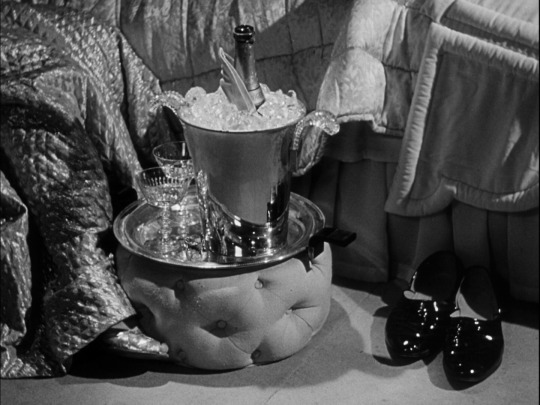
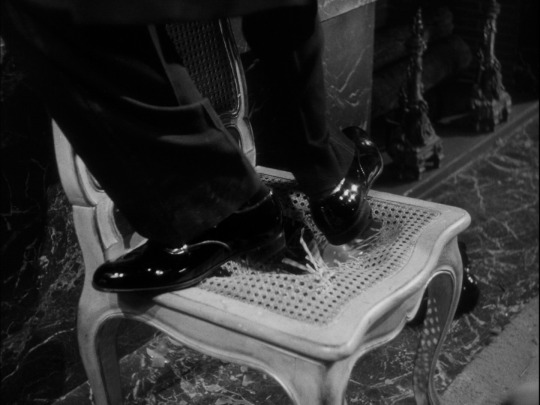
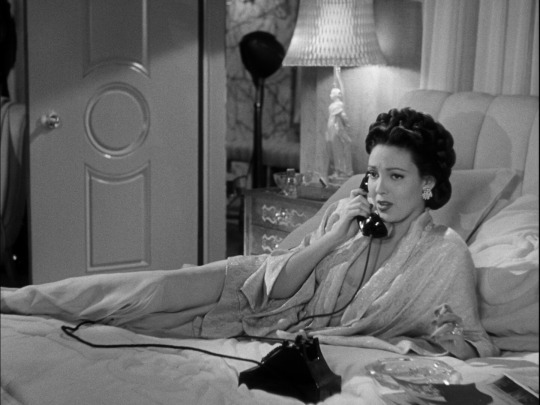

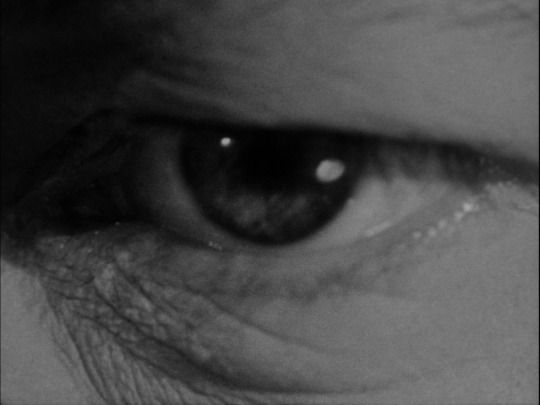

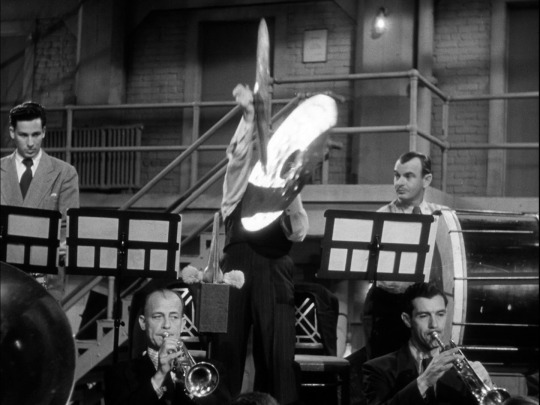
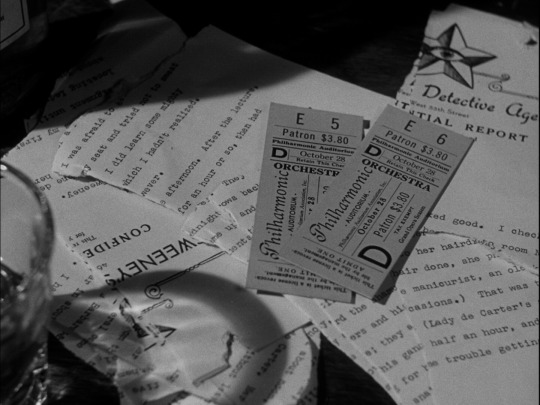
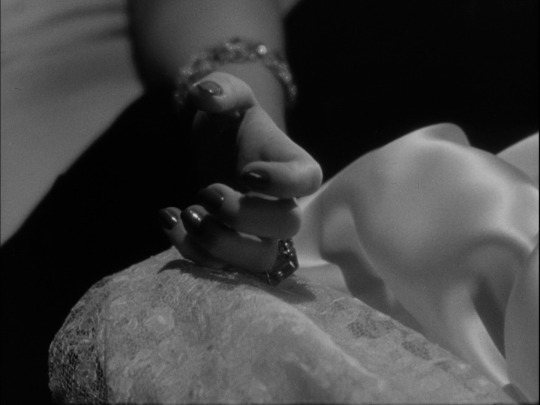
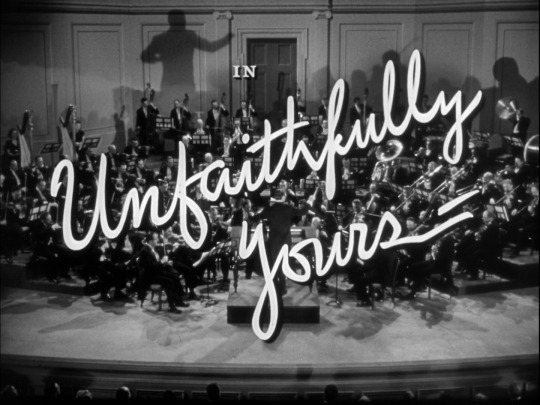
"A thousand poets dreamed a thousand years, then you were born, my love."
Unfaithfully Yours, 1948.
Dir. & Writ. Preston Sturges | DOP Victor Milner
24 notes
·
View notes
Text
Dread by the Decade: The Monster and the Girl
👻 You can support me on Ko-Fi! ❤️

½
Plot: After a man's brain is transplanted into a gorilla, it goes on a brutal revenge mission.
Review: An insane mess that feels like two different films accidentally got spliced together.
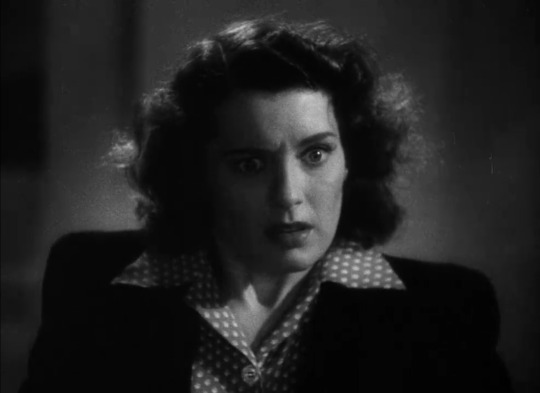
Year: 1941 Genre: Sci-Fi Horror, Creature Feature Country: United States Language: English Runtime: 1 hour 5 minutes
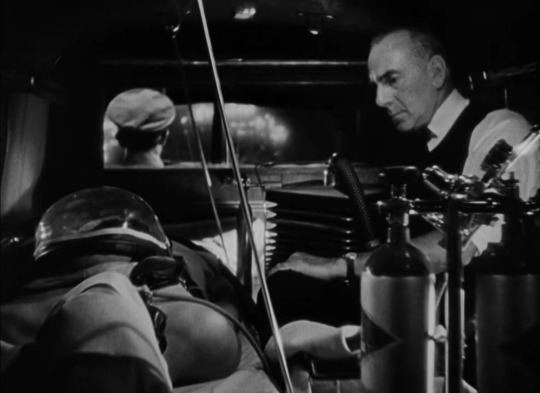
Director: Stuart Heisler Writer: Stuart Anthony Cinematographer: Victor Milner Editor: Everett Douglas Composer: Gerard Carbonara, John Leipold Cast: Ellen Drew, Phillip Terry, Robert Paige, Paul Lukas, Joseph Calleia, Onslow Stevens, George Zucco
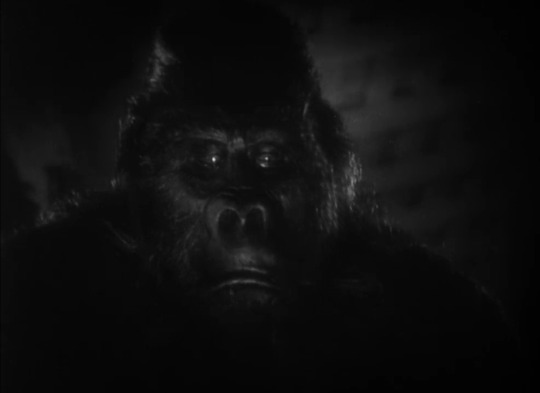
Story: 0.5/5 - Horrid. The first half is a muddy courtroom drama that, without any warning, dovetails into a creature feature/murder mystery.
Performances: 2/5 - Drew gives more energy to her performance than the film deserves, but everyone else is mostly lifeless.
Cinematography: 3/5 - Some well-framed stalking shots.
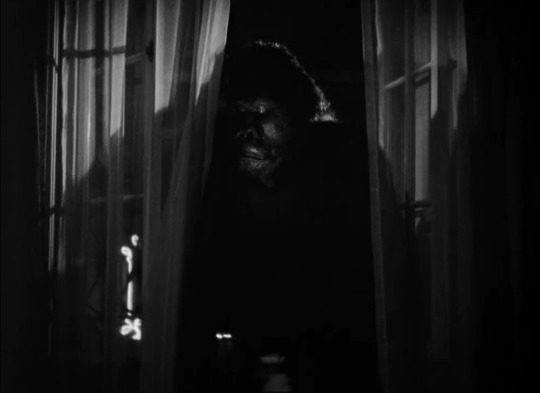
Editing: 2.5/5 - Nothing memorable outside of the surgery scene.
Music: 1.5/5 - Sparse and bland.
Effects & Props: 3.5/5 - It's a mystery as to why the gorilla suit/prop is as passable as it is, with a decent face and moving eyes.
Sets: 2/5
Costumes, Hair, & Make-Up: 3/5
Trigger Warnings:
Mild violence
A woman is tricked into sex work (not graphic)
Animal death
Medical scene (not graphic)
#The Monster and the Girl (1941)#The Monster and the Girl#Stuart Heisler#American#Dread by the Decade#review#1940s
4 notes
·
View notes
Text
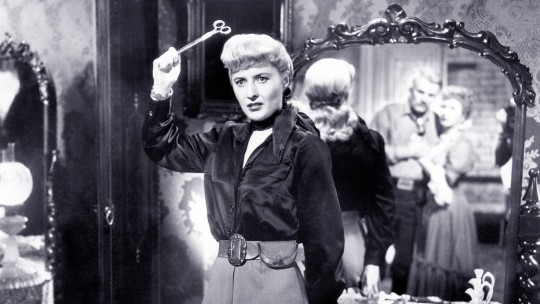
Barbara Stanwyck, Walter Huston, and Judith Anderson in The Furies (Anthony Mann, 1950)
Cast: Barbara Stanwyck, Walter Huston, Wendell Corey, Judith Anderson, Gilbert Roland, Thomas Gomez, Beulah Bondi, Albert Dekker, John Bromfield, Wallace Ford, Blanche Yurka. Screenplay: Charles Schnee, based on a book by Niven Busch. Cinematography: Victor Milner. Art direction: Henry Bumstead, Hans Dreier. Film editing: Archie Marshek. Music: Franz Waxman.
The Furies takes place in a West that never was: Would any real cattleman name his ranch "The Furies"? But that's because the film aims at the mythic, and darn near succeeds. The Furies of myth were goddesses of vengeance, also known as the Eumenides, which means "the gracious ones" -- they were so terrible that humans tried to placate them by calling them by a nice name. In the film, all of the women are to some degree vengeful: Barbara Stanwyck's Vance Jeffords chafes against the notion that because she's a woman, she can't run a ranch; Judith Anderson's Flo Burnett tries to get her hooks into Vance's father and bypass Vance's claim to his estate; Beulah Bondi's Mrs. Anaheim is the real power behind her banker husband; and the most vengeful of them all, Blanche Yurka's Mother Herrera, seeks justice for the hanging of her son. For a Western, it's also awfully talky, with some lines that sound like film noir: "I don't think I like love," says Vance. "It puts a bit in my mouth." Others are obvious attempts to sidestep cliché: Vance's father, T.C. (Walter Huston), tells her she has a "dowry if you pick a man I can favor, one I can sit down at the table with and not dislodge my chow." I suspect that a lot of the dialogue, as well as a lot of the slightly overcomplicated plot, comes from its source, a novel by Niven Busch, adapted by Charles Schnee: Busch knew his way around tough dialogue, having written the screenplay for one of film noir's classics, The Postman Always Rings Twice (Tay Garnett, 1946). Anthony Mann keeps the action from overwhelming the talk and the mythologizing, greatly helped by Stanwyck and Huston (in his final film) as the sparring but inextricably bonded Jeffordses. The movie could have used a stronger love interest than Wendell Corey as Rip Darrow, the man who wants to get the better of T.C., and woos Vance as part of the plot. Corey and Stanwyck don't strike sparks; she's more in tune with Gilbert Roland as Juan Herrera, the squatter on The Furies who has been her friend since childhood -- a subplot that's in some ways more interesting than the financial struggles to get hold of the ranch. Initially a box office failure, the film has grown in stature over the years as a showcase for some of the best work of Stanwyck, Huston, and Mann.
8 notes
·
View notes
Text
Four Year Anniversary Portraits

Holy Simsdom Empire, San Myshuno
Alto Tower

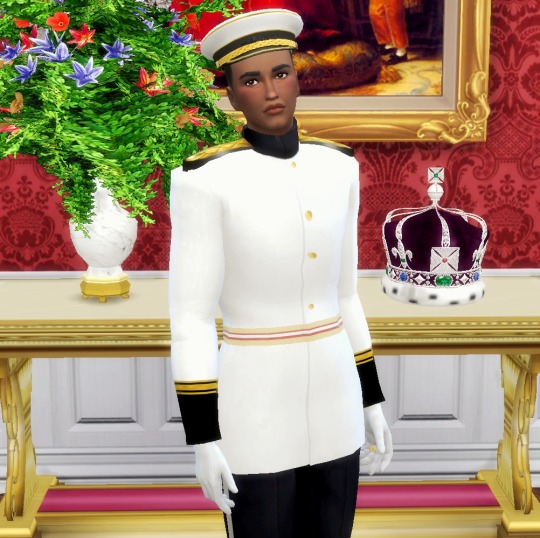
His Lordship, Simon Milner, Earl of Alto
Full Name: Simon Marcus Milner Title(s): Earl of Alto, Chief Petty Officer in Imperial Navy Nickname(s): N/A Birthday: August 7th Residence(s): Alto Heights (San Myshuno) Previous Names/Titles: N/A Parents: Marquess Marcus & Marchioness Corinne Milner Spouse: Countess Viola Milner Children: Viscount Everett & Hon. Elijah Milner


Her Ladyship, Viola Milner, Countess of Alto
Full Name: Viola Hannah Milner Title(s): Countess of Alto Nickname(s): Vi Birthday: February 18th Residence(s): Alto Heights (San Myshuno) Previous Names/Titles: Miss Viola Collins Parents: Mr. Arthur & Mrs. Hannah Collins (divorced) Spouse: Earl Simon Milner Children: Viscount Everett & Hon. Elijah Milner
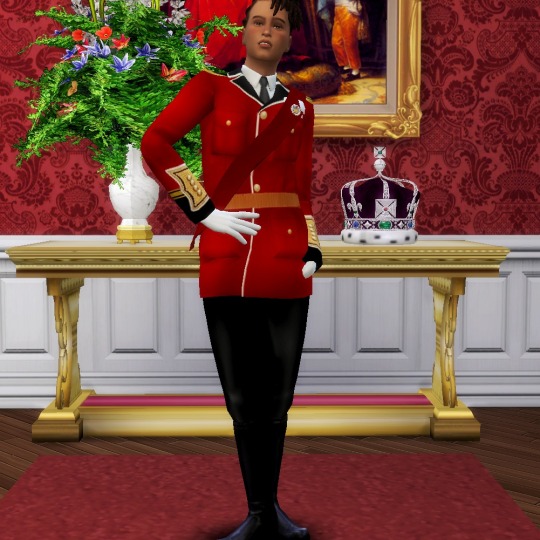

His Lordship, Everett Milner, Viscount of Spire
Full Name: Everett Simon Milner Title(s): Viscount of Spire Nickname(s): N/A Birthday: July 15th Residence(s): Alto Heights, Spire Estate (San Myshuno) Previous Names/Titles: N/A Parents: Earl Simon & Countess Viola Milner Spouse: N/A Children: N/A


The Right Honorable Mr. Elijah Milner
Full Name: Elijah Victor Milner Title(s): The Right Honorable of Alto Nickname(s): Eli Birthday: July 15th Residence(s): Alto Heights (San Myshuno) Previous Names/Titles: N/A Parents: Earl Simon & Countess Viola Milner Spouse: N/A Children: N/A
#ts4#ivanov legacy#ts4 simblr#ts4 legacy#anniversary portrait#4 year anniversary#lord simon#lady viola#lord everett#elijah milner
3 notes
·
View notes
Text

#ProyeccionDeVida
🎥🎼 La Música en el Cine, presenta:
🎬 “EL DESFILE DEL AMOR” [The Love Parade]
🔎 Género: Comedia / Romance / Musical
��️ Duración: 107 minutos
✍️ Guión: Guy Bolton y Ernest Vajda
📘 Obra: Jules Chancel y Leon Xanrof
🎶 Música: W. Franke Harling, John Leipold, Oscar Potoker y Max Terr
📷 Fotografía: Victor Milner (B&W)
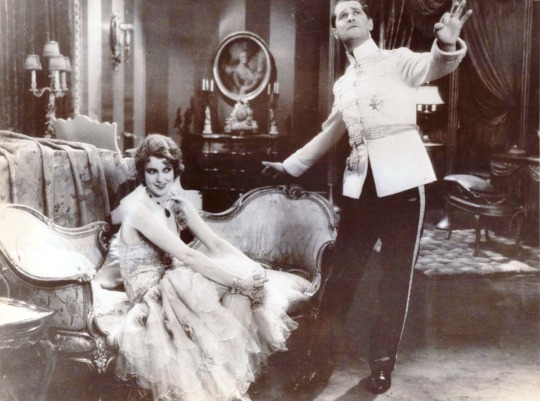
🗯 Argumento: Por sus deshonrosas aventuras en París, el agregado militar, conde Alfred Renard, es devuelto a su país de origen Sylvania, justo en los días en que los miembros del Consejo de Estado andan preocupados porque la reina Louise I no consigue casarse con ninguno de sus pretendientes... pero al ser llevado ante su presencia a la espera de recibir su castigo, Renard conseguirá seducirla y Sylvania va a tener a un príncipe consorte que ha jurado ante la iglesia ser dócil y obediente.
👥 Reparto: Maurice Chevalier (Alfred Renard), Jeanette MacDonald (Queen Louise), Lillian Roth (Lulu), Eugene Pallette (Minister of War), Virginia Bruce, Jean Harlow (Woman in Opera Box), Ben Turpin (Valletto Strabico), Lionel Belmore (Prime Minister), E. H. Calvert (Sylvanian Ambassador) y Edgar Norton (Master of Ceremonies) y Winter Hall.

📢 Dirección: Ernst Lubitsch
© Productora: Paramount Pictures
🌏 País: Estados Unidos
📅 Año: 1929
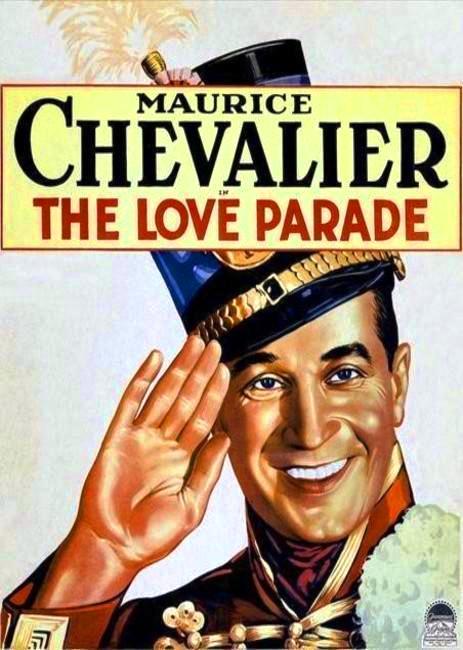
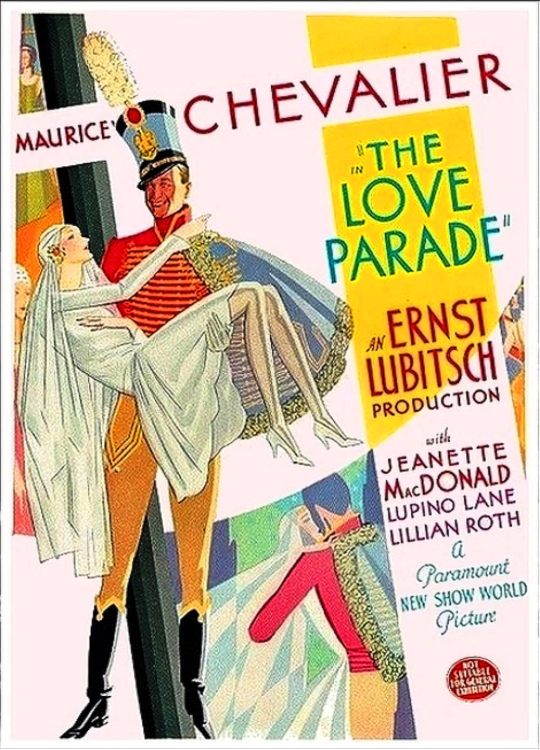
📽 Proyección:
📆 Sábado 23 de Marzo
🕚 11:00am.
🏪 Sala Azul del Centro Cultural PUCP (av. Camino Real 1075 San Isidro)
⭐ Organiza: Sociedad Filarmonica de Lima
🚶♀️🚶♂️ Ingreso libre
0 notes
Text
The Furies
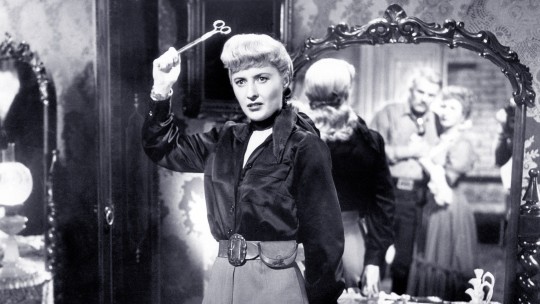
If all Westerns looked like John Ford’s or Anthony Mann’s, I think I’d be a much bigger fan of the genre. Of course, it’s almost unfair to call Mann’s THE FURIES (1950, Criterion Channel, YouTube) a Western. It’s more of an anti-Western. It features the same conflict as in most of the genre — the frontier vs. civilization — but in this case civilization is represented not by home, family and the feminine but rather by business interests, particularly banks. And as shot by Victor Milner, the wide-open spaces are more oppressive than liberating. These characters don’t need railroads and cities and farms to fence them in. They’re already confined by their own twisted passions. Walter Huston is the tyrannical, mercurial owner of a ranch called The Furies. He’s Lear on horseback. He plans to leave everything to his tough, adoring daughter (Barbara Stanwyck) as long as he can control her life, including whomever she might marry. Then he comes home from a business trip with a wealthy widow (Judith Anderson) out to take Stanwyck’s place, and the fur and the scissors fly. Charles Schnee adapted the script from a Niven Busch novel, and at the start it has the meandering quality of a lot of fiction. You can’t quite tell where the story’s going, but the characters and atmosphere are so rich it doesn’t matter. And when you get to see Huston (in his last film) and Stanwyck interact, who needs a plot. There’s a terrific score by Franz Waxman and wonderful supporting work from Anderson, Gilbert Roland, Thomas Gomez, Blanche Yurka and Beulah Bondi, who’s barely on screen five minutes yet manages to capture her character simply in the way she transfers her fan from one hand to the other. Censorship imposed a certain racism on the film. Where Stanwyck and Roland had an affair in the novel and even married, that was turned into a friendship and Roland’s unrequited love, because his character, a Mexican, couldn’t be intimate with a white woman. And then there’s Wendell Corey. He’s better than in a lot of his leading roles, but he hardly seems magnetic enough to capture Stanwyck’s passions. And the character, as written for the screen, doesn’t make a lot of sense. He uses Stanwyck at first and then suddenly falls in love with her. Nor does it help that he has a misguidedly chauvinistic proposal scene: “And don’t ask me to be your husband. If we marry, remember one thing. You’ll be my wife. Whenever you’re wrong, I’ll tell you so. If I’m ever wrong, you just keep your little mouth shut.” Would anybody ever believe he could exercise that kind of control over a Barbara Stanwyck? Or a Barbara Hale? Or even a Barbara Pepper?
#anthony mann#barbara stanwyck#walter huston#judith anderson#gilbert roland#blanche yurka#beulah bondi#thomas gomez#franz waxman#western noir#western#film noir#wendell corey
2 notes
·
View notes
Text
Henry Fonda and Barbara Stanwyck in The Lady Eve (Preston Sturges, 1941)
Cast: Barbara Stanwyck, Henry Fonda, Charles Coburn, Eugene Pallette, William Demarest, Eric Blore, Melville Cooper. Screenplay: Preston Sturges, Monckton Hoffe, based on a story by Hoffe. Cinematography: Victor Milner. Art direction: Ernst Dreier, Hans Fegté. Film editing: Stuart Gilmore.
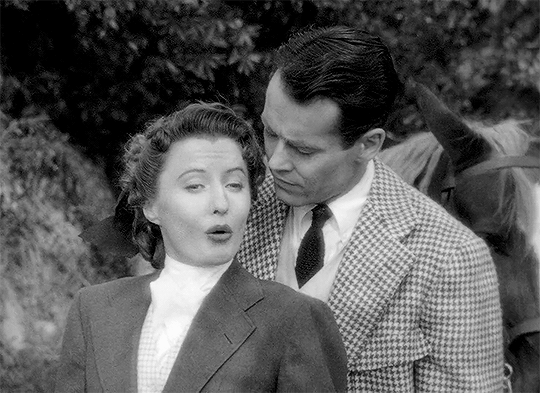


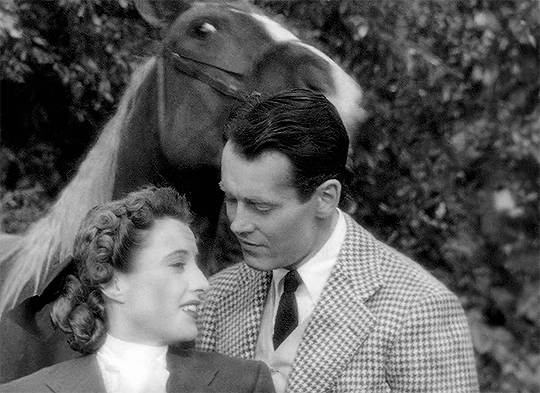
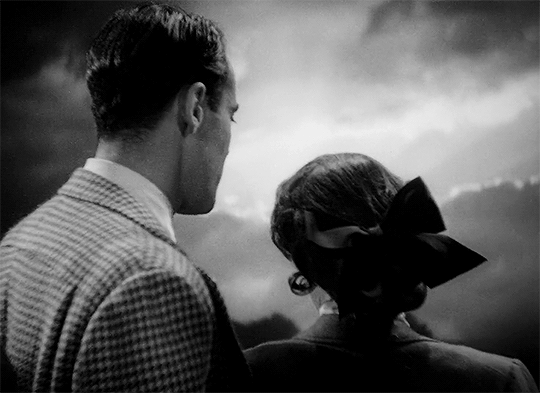

The Lady Eve (1941) | dir. Preston Sturges
478 notes
·
View notes
Text
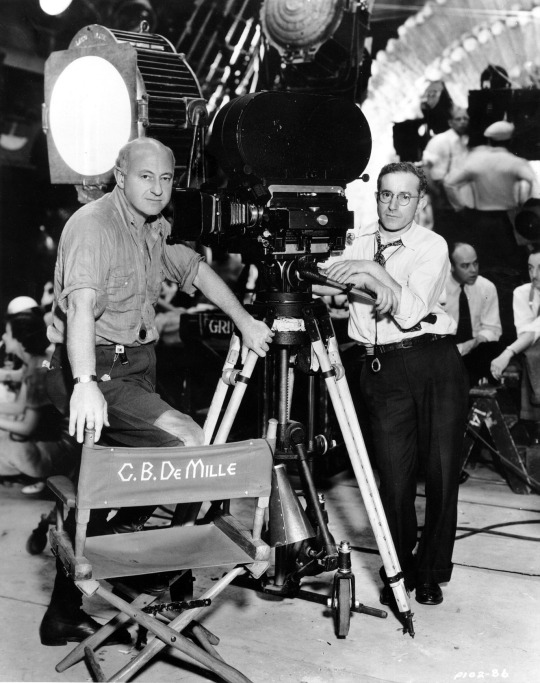
Producer-director Cecil B. DeMille and cinematographer Victor Milner between takes on the elaborate barge set for (1934). Milner won the Academy Award for Best Cinematography for this film.
15 notes
·
View notes
Photo
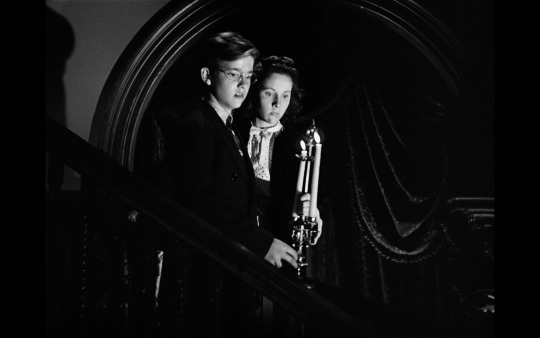
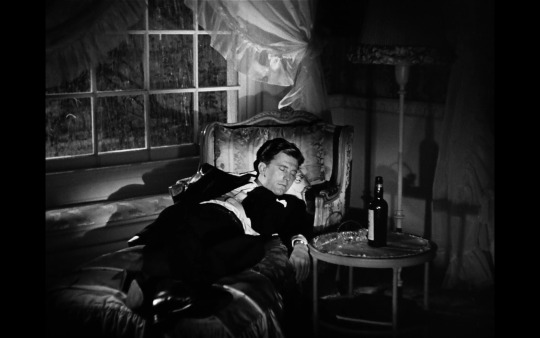
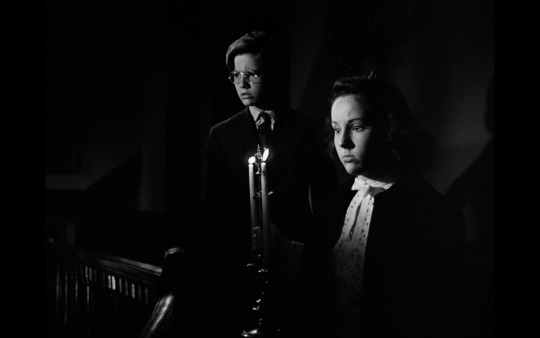
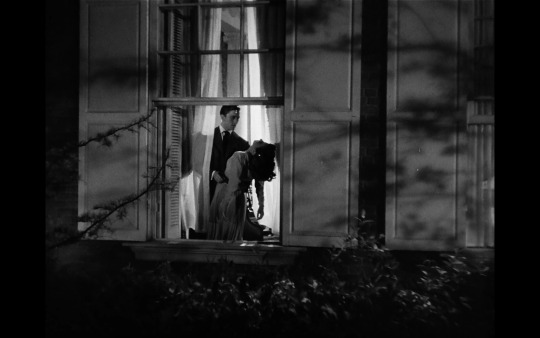
The Strange Love of Martha Ivers (1946) dir. Lewis Milestone
Cinematography by Victor Milner
#The Strange Love of Martha Ivers#lewis milestone#Victor Milner#American movies#american film#old hollywood#classic movies#classic film#classic hollywood#film noir#40s movies#1940s#1946
18 notes
·
View notes
Text

Kay Francis, Miriam Hopkins, and Herbert Marshall in Trouble in Paradise (Ernst Lubitsch, 1932)
Cast: Miriam Hopkins, Kay Francis, Herbert Marshall, Charles Ruggles, Edward Everett Horton, C. Aubrey Smith, Robert Greig. Screenplay: Samson Raphaelson, Grover Jones, based on a play by Aladar Laszlo. Cinematography: Victor Milner. Art direction: Hans Dreier. Music: W. Franke Harling. Costume design: Travis Banton.
If you want a good example of the damage done to American movies by the enforcement of the Production Code, look no further than Trouble in Paradise. Ernst Lubitsch's comic masterpiece could not have been made two years later, when the Code went into effect. It could not even be re-released or shown commercially until the death of the Code in the late 1960s. The loss to the art of cinema is incalculable, even though filmmakers including Lubitsch went on to find other ways of being witty and sexy. On the face of it, Trouble in Paradise sounds trivial: Con artists Lily (Miriam Hopkins) and Gaston (Herbert Marshall) fall in love when each tries to filch the other's belongings: a wallet, a brooch, a watch, a garter. So they team up and go off to Paris where their target becomes the wealthy and beautiful Mariette Colet (Kay Francis), owner of a leading parfumerie. What will happen to Lily when Gaston falls in love with Mariette? What makes it work is Lubitsch's unflagging wit: A film that will soon be wafting the scent of Mme. Colet's perfume opens with a Venetian garbage man dumping the contents of a can into a loaded garbage scow and punting off into a canal singing "O Sole Mio." It's only the first of the many Lubitsch touches. But perhaps the greatest touch of all is the casting: Hopkins was never funnier or sexier and Francis never more radiant. I have to admit that on my first viewing I was initially put off by the casting of Marshall: a sad-eyed, somewhat slumped middle-aged man with a wooden leg. (The scenes in which Gaston sprints up and down Mariette's staircase are probably the work of a body double.) But Marshall turns out to be perfectly charming in the role, credibly wooing both leading ladies. A heartthrob like Cary Grant would have wrecked the chemistry, becoming the apex of what needs to be an equilateral triangle. William Powell would have been too vivid in the part, echoing his previous teamings with Francis. Fredric March had a touch too much of the ham -- Marshall succeeds by underplaying the role. There are some other nice surprises: Those peerless character actors Charles Ruggles and Edward Everett Horton were usually used as comic relief, but Trouble in Paradise is a comedy that needs no relieving; Ruggles and Horton are there to do their own thing and they do it well. The ending, which flouts a key commandment of the Code, is suitably bittersweet, but paradise needs a little trouble to make you appreciate it the more.
4 notes
·
View notes
Photo
Design for Living (Ernst Lubitsch, 1933)
Cast: Fredric March, Gary Cooper, Miriam Hopkins, Edward Everett Horton, Franklin Pangborn, Isabel Jewell, Jane Darwell, Wyndham Standing. Screenplay: Ben Hecht, based on a play by Noël Coward. Cinematography: Victor Milner. Art direction: Hans Dreier. Film editing: Frances Marsh. Music: John Leipold.

the lubitsch touch
86 notes
·
View notes
Text
Crown Princess Inspects Troops



This morning, Her Imperial Highness, Crown Princess Ophelia, addressed the Britechester Naval Brigade in her role as Princess of Britechester.

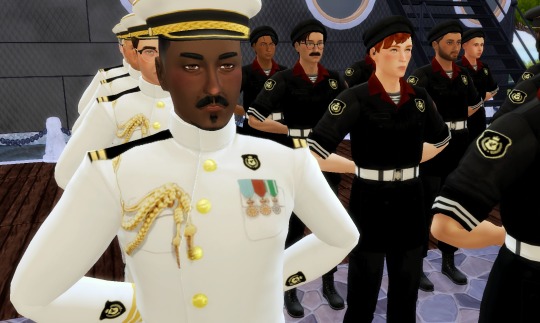
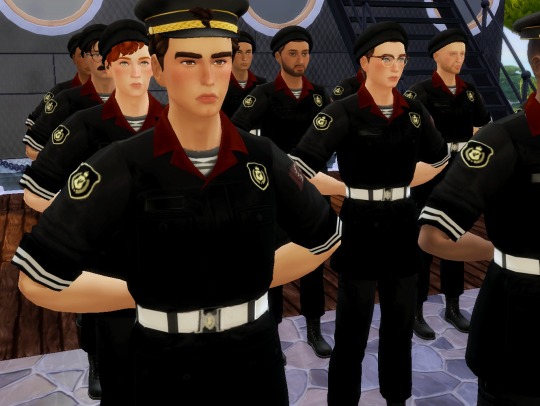
The Britechester Brigade is a special, smaller, naval task force that historically has been used for special missions and elite rescues. Among the soldiers standing at attention this morning on the docks of Evergreen Harbor were many familiar faces, including the Crown Princess' own father- Prince Matthew Norton, brother, Prince Benedict Ivanov, and boyfriend, Cadet Luke Marin. Also numbered among the ranks are Wendelin Humphrey, Duke Whitland, Terry Harden, Earl Culpepper, Francisco Castille, Marquess Cedarworth, Simon Milner, Earl Alto, and Princess Emilia's fiance, Petty Officer Gabriel Micheletti.

HIH addressed her troops with a heartening speech about their honor and duty, as well as thanking them for the sacrifice they're making in serving the greater good of the Simsdom Empire. She then wished them luck and "godspeed" on their endeavors, and admitted that she was praying heartily for their safe return.


With the Britechester Brigade being known for undertaking dangerous and secretive missions, many in the Empire are wondering what they could possibly be heading out to do. Though some are pointing to the perfect timing of the New Windenburg Empire being distracted by Emperor Victor's secret family scandals as the time when this mission was launched. Was it a calculated move by the Tsarina? Or just lucky timing that the NWE is distracted from internal problems while the Simsdom Empire launches a secret mission?
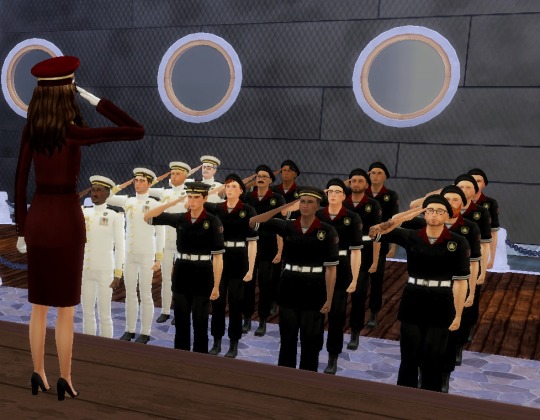
Who can say for sure; we'll just have to wait and see if there's a favorable outcome to the Brigade's launch today.
Good luck boys!
4 notes
·
View notes
Photo




this is the night (us, tuttle 32)
18 notes
·
View notes